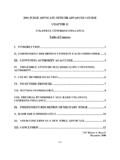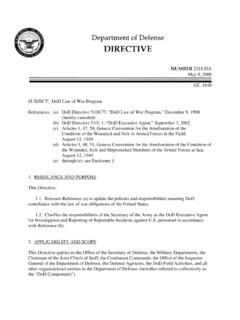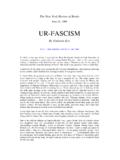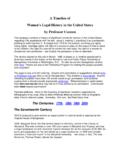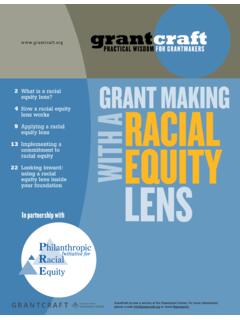Transcription of UR-FASCISM - PEGC
1 The New York Review of BooksJune 22, 1995UR-FASCISMBy Umberto 1942, at the age of ten, I received the First Provincial Award of Ludi Juveniles (avoluntary, compulsory competition for young Italian Fascists that is, for every youngItalian). I elaborated with rhetorical skill on the subject "Should we die for the glory ofMussolini and the immortal destiny of Italy?" My answer was positive. I was a smart spent two of my early years among the SS, Fascists, Republicans, and partisans shootingat one another, and I learned how to dodge bullets. It was good April 1945, the partisans took over in Milan. Two days later they arrived in the smalltown where I was living at the time. It was a moment of joy. The main square wascrowded with people singing and waving flags, calling in loud voices for Mimo, thepartisan leader of that area.
2 A former maresciallo of the Carabinieri, Mimo joined thesupporters of General Badoglio, Mussolini's successor, and lost a leg during one of thefirst clashes with Mussolini's remaining forces. Mimo showed up on the balcony of thecity hall, pale, leaning on his crutch, and with one hand tried to calm the crowd. I waswaiting for his speech because my whole childhood had been marked by the great historicspeeches of Mussolini, whose most significant passages we memorized in school. spoke in a hoarse voice, barely audible. He said: "Citizens, friends. After so manypainful sacrifices .. here we are. Glory to those who have fallen for freedom." And thatwas it. He went back inside. The crowd yelled, the partisans raised their guns and firedfestive volleys. We kids hurried to pick up the shells, precious items, but I had alsolearned that freedom of speech means freedom from few days later I saw the first American soldiers.
3 They were African Americans. Thefirst Yankee I met was a black man, Joseph, who introduced me to the marvels of DickTracy and Li'l Abner. His comic books were brightly colored and smelled of the officers (Major or Captain Muddy) was a guest in the villa of a family whosetwo daughters were my schoolmates. I met him in their garden where some ladies,surrounding Captain Muddy, talked in tentative French. Captain Muddy knew someFrench, too. My first image of American liberators was thus after so many palefaces inblack shirts that of a cultivated black man in a yellow-green uniform saying: "Oui,merci beaucoup, Madame, moi aussi j'aime le champagne .." Unfortunately there wasno champagne, but Captain Muddy gave me my first piece of Wrigley's Spearmint and Istarted chewing all day long. At night I put my wad in a water glass, so it would be freshfor the next May we heard that the war was over.
4 Peace gave me a curious sensation. I had beentold that permanent warfare was the normal condition for a young Italian. In the followingmonths I discovered that the Resistance was not only a local phenomenon but a Europeanone. I learned new, exciting words like r seau, maquis, arm e secr te, Rote Kapelle,Warsaw ghetto. I saw the first photographs of the Holocaust, thus understanding themeaning before knowing the word. I realized what we were liberated my country today there are people who are wondering if the Resistance had a realmilitary impact on the course of the war. For my generation this question is irrelevant: weimmediately understood the moral and psychological meaning of the Resistance. For us itwas a point of pride to know that we Europeans did not wait passively for liberation. Andfor the young Americans who were paying with their blood for our restored freedom itmeant something to know that behind the firing lines there were Europeans paying theirown debt in my country today there are those who are saying that the myth of the Resistance was aCommunist lie.
5 It is true that the Communists exploited the Resistance as if it were theirpersonal property, since they played a prime role in it; but I remember partisans withkerchiefs of different colors. Sticking close to the radio, I spent my nights the windowsclosed, the blackout making the small space around the set a lone luminous halo listening to the messages sent by the Voice of London to the partisans. They were crypticand poetic at the same time (The sun also rises, The roses will bloom) and most of themwere "messaggi per la Franchi." Somebody whispered to me that Franchi was the leaderof the most powerful clandestine network in northwestern Italy, a man of legendarycourage. Franchi became my hero. Franchi (whose real name was Edgardo Sogno) was amonarchist, so strongly anti-Communist that after the war he joined very right-winggroups, and was charged with collaborating in a project for a reactionary coup d' tat.
6 Whocares? Sogno still remains the dream hero of my childhood. Liberation was a commondeed for people of different my country today there are some who say that the War of Liberation was a tragicperiod of division, and that all we need is national reconciliation. The memory of thoseterrible years should be repressed, refoul e, verdr ngt. But Verdr ngung causes reconciliation means compassion and respect for all those who fought their own war ingood faith, to forgive does not mean to forget. I can even admit that Eichmann sincerelybelieved in his mission, but I cannot say, "OK, come back and do it again." We are hereto remember what happened and solemnly say that "They" must not do it who are They?If we still think of the totalitarian governments that ruled Europe before the SecondWorld War we can easily say that it would be difficult for them to reappear in the sameform in different historical circumstances.
7 If Mussolini's fascism was based upon the ideaof a charismatic ruler, on corporatism, on the utopia of the Imperial Fate of Rome, on animperialistic will to conquer new territories, on an exacerbated nationalism, on the idealof an entire nation regimented in black shirts, on the rejection of parliamentarydemocracy, on anti-Semitism, then I have no difficulty in acknowledging that today theItalian Alleanza Nazionale, born from the postwar Fascist Party, MSI, and certainly aright-wing party, has by now very little to do with the old fascism . In the same vein, eventhough I am much concerned about the various Nazi-like movements that have arisen hereand there in Europe, including Russia, I do not think that Nazism, in its original form, isabout to reappear as a nationwide , even though political regimes can be overthrown, and ideologies can becriticized and disowned, behind a regime and its ideology there is always a way ofthinking and feeling, a group of cultural habits, of obscure instincts and unfathomable3drives.
8 Is there still another ghost stalking Europe (not to speak of other parts of theworld)?Ionesco once said that "only words count and the rest is mere chattering." Linguistichabits are frequently important symptoms of underlying feelings. Thus it is worth askingwhy not only the Resistance but the Second World War was generally defined throughoutthe world as a struggle against fascism . If you reread Hemingway's For Whom the BellTolls you will discover that Robert Jordan identifies his enemies with Fascists, even whenhe thinks of the Spanish Falangists. And for FDR, "The victory of the American peopleand their allies will be a victory against fascism and the dead hand of despotism itrepresents."During World War II, the Americans who took part in the Spanish war were called"premature anti-fascists" meaning that fighting against Hitler in the Forties was a moralduty for every good American, but fighting against Franco too early, in the Thirties,smelled sour because it was mainly done by Communists and other leftists.
9 Why wasan expression like fascist pig used by American radicals thirty years later to refer to a copwho did not approve of their smoking habits? Why didn't they say: Cagoulard pig,Falangist pig, Ustashe pig, Quisling pig, Nazi pig?Mein Kampf is a manifesto of a complete political program. Nazism had a theory ofracism and of the Aryan chosen people, a precise notion of degenerate art, entarteteKunst, a philosophy of the will to power and of the Ubermensch. Nazism was decidedlyanti-Christian and neo-pagan, while Stalin's Diamat (the official version of SovietMarxism) was blatantly materialistic and atheistic. If by totalitarianism one means aregime that subordinates every act of the individual to the state and to its ideology, thenboth Nazism and Stalinism were true totalitarian fascism was certainly a dictatorship, but it was not totally totalitarian, not becauseof its mildness but rather because of the philosophical weakness of its ideology.
10 Contraryto common opinion, fascism in Italy had no special philosophy. The article on fascismsigned by Mussolini in the Treccani Encyclopedia was written or basically inspired byGiovanni Gentile, but it reflected a late-Hegelian notion of the Absolute and Ethical Statewhich was never fully realized by Mussolini. Mussolini did not have any philosophy: hehad only rhetoric. He was a militant atheist at the beginning and later signed theConvention with the Church and welcomed the bishops who blessed the Fascist his early anticlerical years, according to a likely legend, he once asked God, in order toprove His existence, to strike him down on the spot. Later, Mussolini always cited thename of God in his speeches, and did not mind being called the Man of fascism was the first right-wing dictatorship that took over a European country,and all similar movements later found a sort of archetype in Mussolini's regime.
